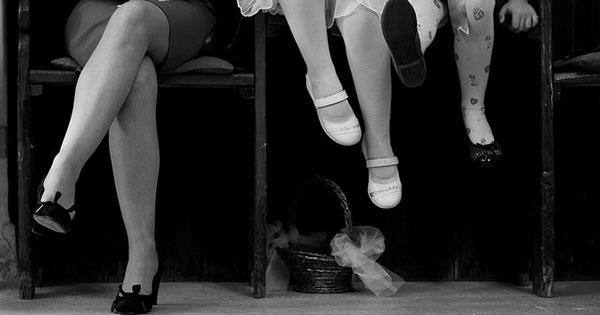
When, as a teenager, I started hearing about the existence of transsexuals, the most fascinating were the 100 percent passable, those able to live in “deep stealth.” News of such creatures came only when one of them—such as Caroline Cossey, who had played a “Bond girl” on screen, or Jahna Steele, a famous Las Vegas showgirl—was outed. These reports were like sightings of the elusive giant squid, found in fishing nets or washed up on the beach but never in the depths of their habitat.
Living in stealth has long been the ultimate dream of many trans people, a life of undetectable blending thanks to the superpower of hiding in plain sight, known as “passability.” Yet now, despite advances in surgical procedures and puberty blockers that enable children to transition with amazing results, stealth is becoming passé. People who might have previously attempted it are now opting for a viable trans identity, along with a community and rights to be fought for—none of which can happen in stealth. The fashion model Geena Rocero voluntarily came out of stealth last year for this reason.
Recently I ran into Jamison, a trans woman in her 20s who lives in stealth (though, interestingly, she is still drawn to trans gatherings). She claims her closest friends don’t even know. A Harvard grad—she makes sure to mention this—Jamison doesn’t feel others have the mental capacity to understand her. I told her she might be underestimating her friends. What I didn’t say was how obvious it was that her stealth has nothing to do with intellectual concepts and everything to do with fear. She spoke a mile a minute in a voice barely above a whisper and was motionless—frozen—below the neck.
Here’s some real complexity: the youngest of my friend’s four children is eight and living in stealth. Lacey (out of respect I’ve changed some names in this piece) began to transition from male to female in a Southern Bible Belt town, which didn’t go well. So a few years ago, my friend and her husband moved the family to New England. Now she is in relative stealth: only her third-grade teacher knows, and a few of her friends (and one rude child who barged into a bathroom stall). When a trans boy in the school came out the year before, Lacey watched in silence.
It occurred to me that a stealth child puts the whole family in stealth, and I wondered how the siblings were handling it. So far, so good, my friend told me. They’re highly protective of their youngest sister, but they also have permission, when it feels important, to tell a friend. It’s their family, too, and their story, and they’re no longer in the Bible Belt. Here is a remarkable family, skillfully building a web of allies in the larger community. As for coming out more publicly, that’s Lacey’s call.
I no longer romanticize living in stealth, which by all reports turns out to be like entering a witness protection program. When a person denies her past and replaces it with a cover story, she will have a hard time making friends. And an unshared life, no matter how adventurous it may sound, strikes me as a boring one. I do want to be able to pass—especially when it protects me—but I also want deep relationships.


